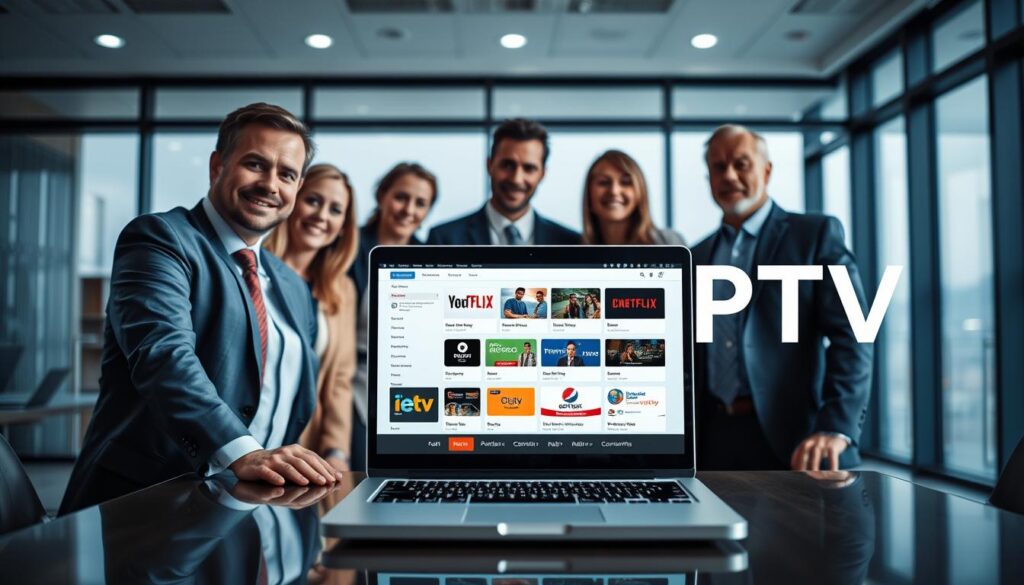Your quick guide cuts through jargon and gives clear, practical information about how licensing and compliance shape what you can watch in 2025-2026.
Ofcom and UK copyright rules determine what counts as permitted access. Enforcement rose after the Digital Economy Act 2017, with actions reported up to 2023.
Choose providers that show rights, clear pricing, and transparent apps. Established pay-TV brands such as BT TV, Sky, and Virgin Media follow proper rights and offer stable viewing.
Free options like BBC iPlayer, ITVX, and Channel 4 (All 4) let you stream safely without extra cost. This guide also flags risks tied to unlawful platforms and how that can affect your data and device safety.
You’ll later see a short list of top recommendations, trial options, and setup tips to improve your viewing experience and protect your account.
Key Takeaways
- You’ll get a 2025-2026 answer showing that legality depends on licensing and compliance, not the technology.
- Pick services that state clear rights, offer transparent apps, and use recognized payment methods.
- Ofcom and copyright law shape enforcement; unlawful streaming carries legal and security risks.
- Free platforms like BBC iPlayer, ITVX, and All 4 provide safe, low-cost viewing.
- Later sections list top recommended services with trials, 4K/FHD, and EPG clarity for UK viewers.
What IPTV Means in 2025 and How It Works in the UK
By 2025, streaming over broadband has become the primary way many households get live channels and on-demand video. Services deliver feeds across your internet connection instead of via satellite or traditional cable networks.
How content reaches your screen: managed apps and platforms provide curated catalogs, channel lineups, and EPG data. These layers help you find shows, set reminders, and get personalised recommendations.
You choose apps on smart TVs, streaming sticks, or set-top boxes. This flexibility drives adoption, since one interface can consolidate multiple entertainment services and channels.
- Delivery: bandwidth, encoding, and CDN pipelines affect video quality and uptime.
- Compatibility: most legitimate apps support major smart TV systems and popular streaming devices.
- Why viewers switch: cost-effectiveness, device freedom, and wider content choices.
Tip: check providers that state clear rights and good infrastructure. For a UK-focused option and service details, see this short resource: IPTVVUK provider page.
is iptv legal in uk
The bottom line for you: technology that streams channels over your broadband is lawful, but what matters is whether a provider holds rights for what it broadcasts.
The dividing line between a permitted service and illegal iptv rests on contracts and copyright. A trustworthy provider will show or describe licensing agreements, list the channels it carries, and offer transparent terms before you subscribe.
What makes a service lawful versus unlawful
Legal iptv services operate under distribution or broadcast licences. They pay rights holders and follow UK regulations for EPG data and transmission. Unlawful operators redistribute copyrighted channels without permission.
Watch for ultra-cheap bundles that promise premium channels with no rights detail. Those offers often signal illegal iptv and expose you to risks from enforcement, poor stream quality, and data exposure.
Why licensing and rights decide outcomes in 2025–2026
- Proof of rights: clear contracts and named channel lists protect you as a user.
- Regulatory compliance: services that document permissions align with Ofcom expectations and copyright laws.
- Practical check: read terms, confirm payment channels, and prefer providers that publish rights info.
The UK Legal Framework: Copyright, Ofcom, and Streaming Rules
Clear rights, documented contracts, and regulator oversight form the backbone of safe streaming services. You must know which statutes apply before you pick a provider.
Core UK copyright laws that apply to streaming
The Copyright, Designs and Patents Act 1988 remains the foundation. It protects creators and makes unauthorised redistribution an offence.
The Digital Economy Act 2017 strengthened penalties for copyright infringement and supports enforcement actions through to 2025–2026.
Ofcom’s role and regulatory oversight
Ofcom regulates broadcasting and communications. It expects compliance with content rules, advertising standards, and age ratings.
Regulations require clear terms, transparent rights listings, and proper handling of EPG data.
Licensing: channels, EPG data, and distribution
- Contracts matter: rights for live channels and on‑demand catalogs are often licensed separately.
- Geolocation and distribution: services must manage access to match territorial rights.
- Provider transparency: reputable iptv providers publish terms, privacy policies, and rights statements.
Legal IPTV vs. Illegal IPTV: Clear Differences You Should Know

Spotting safe streaming options often comes down to simple, verifiable proof that a provider holds rights and offers clear support.
Pay attention to what a seller publishes. Legitimate services like BT TV, Sky, and Virgin Media list channel lineups, publish terms, and offer official apps. That transparency matters.
Red flags that suggest an illegal IPTV service
- Extremely low prices for premium bundles and claims of “all channels” with no channel list.
- Cryptocurrency-only payments or sellers who change domains often.
- Vague or missing terms, no privacy policy, or sideload-only apps with constant pop‑ups.
- Streams that buffer, drop, or come from inconsistent domains rather than stable CDNs.
- Unverified resellers or social‑media sellers with polished adverts but no billing receipts.
What to prefer: clear billing (cards or PayPal), official app distribution, documented EPG sources, and responsive support. These traits cut risk and reduce service interruptions.
| Feature | Licensed providers | Illegal suppliers |
|---|---|---|
| Channel list | Published with regional notes | Claims “all channels” without proof |
| Payments | Cards, PayPal, standard invoices | Crypto-only or anonymous wallets |
| Apps & delivery | Official app stores, stable streams | Sideload-only apps, poor uptime |
| Support & records | Receipts, helpdesk, clear T&C | No receipts, evasive contact details |
“Choose providers that publish rights and clear terms; it saves time and protects your device and data.”
Risks of Illegal IPTV in the UK (2025-2026)
Unauthorized streaming packs expose users to enforcement, malware, and sudden service loss.
Legal penalties. You can face fines or prosecution for copyright infringement. Authorities have used the Digital Economy Act to pursue organisers and distribution networks. Courts may hold sellers and, in serious cases, end users accountable.
Security threats. Fake updates, malicious APKs, and phishing pages often accompany illegal iptv services. These attacks can harvest credentials or install malware that spreads across your home network.
Service risks. Unlawful providers change domains, drop streams, and vanish after raids. That leaves you with no refunds, no support, and lost months of payment.
- You face real legal exposure with fines and possible prosecution if caught using illegal iptv.
- Copyright infringement drives enforcement; organisers and resellers are main targets.
- Security lapses lead to data theft, phishing, and device compromise for people in your home.
- Unstable streams and sudden shutdowns mean no recourse and significant trouble for users.
Tip: choose licensed services and clear terms to protect your devices and wallet.
How to Verify a Legal IPTV Service Before You Subscribe
A quick verification routine can save you money, protect your devices, and ensure steady viewing.
Pricing and payments that signal legitimacy:
- Compare prices to well-known services; very low offers for premium channels are a red flag.
- Traceable payments (cards, PayPal) and VAT invoices show the provider runs a compliant services business.
- Avoid crypto-only checkout flows — those often signal anonymous suppliers and little recourse.
Content libraries, app availability, and EPG transparency
Check that the provider publishes a channel list and states where rights come from.
Official apps in Apple or Google stores and clear EPG sources mean better quality and easier access across devices.
Customer support, T&Cs, and privacy policies
Test support with a pre-sale question. A prompt, documented reply is a good sign for customer care.
Read terms, refunds, and privacy pages; providers often post these publicly when they operate professionally.
“Choose providers that publish rights and clear terms; it saves time and protects your device and data.”
Practical checklist before you pay:
- Verify app availability on your devices and any device limits.
- Confirm account security: device controls, password reset, and two‑step options.
- Use free trials to test peak‑time performance for your network.
- Watch for sideload-only apps or anonymous domains — these often point to illegal iptv suppliers.
- For an organised supplier list and service details, see this short resource: IPTV suppliers.
Top UK IPTV Providers for 2025-2026
Compare leading providers that balance huge channel libraries, robust support, and 4K streams. Try free trials to verify playback on your devices before you commit.
SOLID IPTV — Channels: 30K+ | Quality: 4K / FHD | Free Trial: Yes | Support: Super‑Fast | EPG: Yes.
IPTVVUK — Channels: 24K+ | Quality: 4K / FHD | Free Trial: Yes | Support: Super‑Fast | EPG: Yes. See more about the best offerings at best iptv in the UK.
G‑IPTV — Channels: 28K+ | Quality: 4K / FHD | Free Trial: Yes | Support: Super‑Fast | EPG: Yes.
For viewers who prize established carriers, consider BT TV, Sky, or Virgin Media. Those services provide licensed content, integrated billing, and strong customer support.
| Provider | Channels | Quality | Free Trial | EPG / Support |
|---|---|---|---|---|
| SOLID IPTV | 30K+ | 4K / FHD | Yes | EPG: Yes · Support: Super‑Fast |
| IPTVVUK | 24K+ | 4K / FHD | Yes | EPG: Yes · Support: Super‑Fast |
| G‑IPTV | 28K+ | 4K / FHD | Yes | EPG: Yes · Support: Super‑Fast |
| BT TV / Sky / Virgin Media | Varies | HD / 4K | Trial or bundles | Licensed content · Full support |
Tip: Use a free trial to test peak‑time performance and device limits before you subscribe.
Free and Low-Cost Legal Alternatives in the UK

You can build a full entertainment lineup by mixing no-cost catch-up apps and low-price bundle deals.
Free platforms that deliver wide content libraries:
- BBC iPlayer, ITVX, Channel 4 (All 4): generous catch-up, on‑demand shows, and live channels that keep viewing legal and safe.
- How they help: curated catalogs, user profiles, offline downloads where allowed, and clear rights statements for users.
Bundle-friendly options: Sky Stream and BT TV
Sky Stream and BT TV combine live channels and on‑demand catalogs under transparent pricing and support. They work across smart TVs and common streaming devices.
- Try a free trial to test peak performance and confirm your favourite genres are covered.
- Check catch‑up windows and download limits before upgrading.
- Mix free platforms with low-cost bundles to balance budget and coverage.
Tip: For a concise overview of rights and options, see the legal iptv overview.
Quality, Stability, and EPG: What to Expect from Legal IPTV
Reliable streams and accurate programme guides shape how well you watch live TV.
Licensed providers invest in delivery systems that cut buffering and keep HD and 4K quality steady. Adaptive bitrate tech adjusts to your bandwidth so the video stays smooth during peak times.
Accurate EPG data improves your daily experience. It helps you plan recordings, time‑shift shows, and find new content fast. When guide data is wrong, recordings fail and tuning is a chore.
Unlicensed operators often suffer abrupt channel loss, broken guide info, and frequent URL changes. That instability harms picture clarity and leaves you without support when channels drop.
| Metric | Licensed providers | Typical benchmark | Illegal suppliers |
|---|---|---|---|
| Peak-time uptime | 99%+ | Minimal buffering | Frequent outages |
| Picture quality | HD / 4K with adaptive rates | Consistent FHD / 4K | Poor or downgraded feeds |
| EPG accuracy | Published, synced guides | Reliable scheduling | Missing or incorrect listings |
| App & support | Official apps, timely updates | Fast fixes and clear comms | Sideload apps, no support |
How to test for yourself: check in‑app stats during peak hours, run a short 4K clip, and compare playback to cable or satellite. If guide data and picture hold up, the service likely meets real delivery standards.
For a quick comparison of top options and trial offers, see the best IPTV services for 2025.
“A well‑maintained EPG and resilient delivery stack give you a better viewing experience and fewer interruptions.”
Devices and Setup: Watching IPTV Legally in the UK
Start with devices that your chosen provider officially supports. Check the compatibility list on the provider site before you buy hardware or install an app.
Install only official apps from major platforms — Apple App Store, Google Play, Amazon store, or your TV maker’s app store. That keeps your account secure and avoids risky APKs from unknown sites.
Use a wired Ethernet link where possible for the best internet stability. If you use Wi‑Fi, optimise placement and enable router QoS for video traffic.
Check device specs for HD or 4K playback, confirm supported codecs, and set display, audio, and subtitle options after activation. Keep apps updated for patches and faster fixes.
- Sign in with unique passwords and enable two‑step checks if offered.
- Manage registered devices from your account dashboard and avoid sharing login details that breach terms.
- Verify channel lists and regional availability on the provider’s site before paying.
- Contact support promptly if activation codes or registration fail; reputable services publish clear setup guides and troubleshooting steps.
For a compact list of vetted options and setup notes, see the best IPTV services for 2025.
Tip: Official apps and a stable home network give you the best chance of smooth, secure streaming of your chosen content.
Staying Safe Online While Streaming in 2025-2026
Protecting your account details and devices matters more than ever while you stream. Simple habits cut risk and keep viewing steady.
Protecting personal data and avoiding phishing
Watch for fake renewal notices and cloned domains. Scammers send urgent emails that ask for passwords or payment details. Pause, check the sender, and never follow links from chats or social posts.
Use secure payments, unique passwords, and two‑step verification. These steps stop most account takeovers and reduce fraud.
- Verify official domains before entering any information.
- Avoid installing apps from random links; use app stores only.
- Keep devices and apps updated to patch vulnerabilities.
Read privacy policies so you know what information a service collects and how it is used. Interacting with illegal iptv services raises the chance of malware and identity theft.
“Choose licensed providers and follow basic device hygiene to protect your data and viewing.”
For an organised supplier list and safer choices, see this trusted supplier list.
Buyer’s Checklist for UK Users in 2025
Treat each subscription like a small contract: confirm the provider’s official domain, app store listings, and clear plan pages before you pay.
Quick due diligence steps before paying
- Verify the official app appears on Apple, Google, or Amazon stores and matches the provider domain.
- Check a published channel list that names networks and region availability rather than vague promises.
- Read T&Cs, privacy, and acceptable‑use pages to make sure the service follows relevant laws.
- Insist on traceable payments (card or PayPal) and request an invoice that lists plan, term, and any taxes.
- Test pre‑sales support with a question; save screenshots of replies as proof of responsiveness.
- Use a free trial to assess peak‑time stability and EPG accuracy before committing to a paid term.
- Avoid suppliers that push crypto‑only checkout or cannot verify rights for the channels they offer.
How to keep proof of purchase and subscription records
Save confirmation emails, invoices, and renewal dates in a dedicated folder. Capture cancellation steps and any auto‑renew clauses so you can act before a charge posts.
Track which devices are authorised and how many concurrent streams your plan allows. Keep receipts and screenshots of customer service chats; these help if disputes arise.
| Proof item | What to confirm | Why it matters |
|---|---|---|
| Official app listing | Same name and developer as provider domain | Reduces risk of sideloaded or malicious apps |
| Channel list | Named networks with regional notes | Shows the provider holds distribution rights |
| Payment & invoice | Card/PayPal with VAT invoice | Gives traceable billing and refunds if needed |
| Support record | Screenshots of replies and ticket IDs | Evidence for disputes and service claims |
You can also read a concise buying guide here: how to choose the right provider. Follow these steps and you’ll protect your device, data, and wallet when you subscribe.
What To Do If You Accidentally Use an Illegal IPTV
If you discover you’ve been using an unlawful streaming provider, act quickly to limit exposure and secure your accounts.
Stop access and remove risky apps. Immediately stop the service and delete any sideloaded apps or suspicious add‑ons from all devices.
Secure credentials and payments. Change passwords for email, streaming, and banking logins. Enable two‑factor authentication where possible.
- Contact your bank or card issuer if you suspect unauthorised charges and monitor statements closely.
- Save receipts, order IDs, messages, and screenshots for any chargeback or dispute.
- Run full malware scans on affected devices and update firmware and apps.
- Check your router for unknown port forwards or devices and reset admin credentials.
- Do not engage with resellers who pressure you via social chat or encrypted messages.
Understand the risk: copyright infringement and enforcement actions can target distributors and, in some cases, subscribers. Stopping use and documenting transactions reduces trouble and helps if you must respond to payment processors or authorities.
Tip: move to licensed alternatives that match your viewing needs to avoid further exposure. See the British IPTV status guide for more on compliant providers and next steps.
Conclusion
When rights and transparency guide choices, you reduce risk and improve viewing quality for the years ahead.
You now know how iptv legal status depends on proven rights and regulatory compliance, not the streaming method. Choose licensed legal iptv services that publish channel lists, clear terms, and official apps.
Watch for signs that mark the difference legal illegal — pricing, payments, app sources, and published policies. If you need a quick refresher, see this IPTV legal guide.
Next step: test top recommendations with trials, verify performance on your devices, and pick providers that protect your data and deliver the content you want for 2025–2026.

